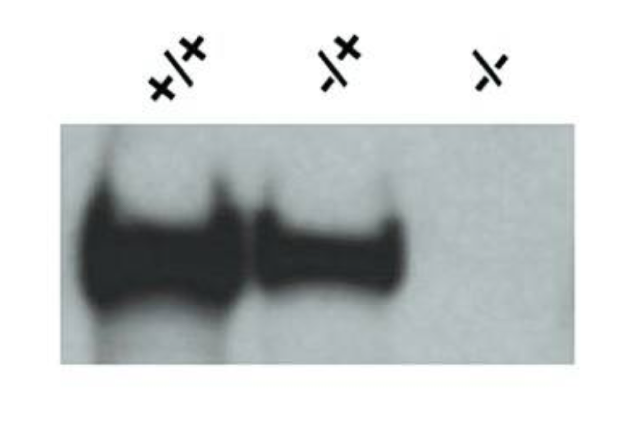This is a knockout-validated antibody summary, based on the publication "The skeletal phenotype of achondrogenesis type 1A is caused exclusively by cartilage defects", as cited below [1]. Labome curates formal publications to compile a list of antibodies with unambiguous specificity within Validated Antibody Database (VAD).

Mouse monoclonal IgG1
Company: LifeSpan Biosciences
Antibody: TRIP230/TRIP11
Catalog number: LS-C20059
Summary: Mouse monoclonal IgG1 against recombinant human TRIP230/TRIP11 (GMAP-210)(epitope: aa 1099-1372). Reacts with human by western blot and immunoprecipitation. Not suitable for immunohistochemistry (paraffin).
Western blot
Mouse embryonic fibroblasts extracted from E13.5 wild-type, Trip11−/+ and knockout embryos. Cells were lysed on ice in 1 ml mammalian lysis buffer (Promega) containing 1× protease inhibitor cocktail (Promega) for 10 min.
Western breeze blocking buffer (Life Technologies) for 30 min.
1/500 dilution in western breeze antibody dilution buffer for 1 h at room temperature.
1/10,000 dilution peroxidase-coupled goat anti-mouse IgG (Thermo Scientific, 31320) in western breeze antibody dilution buffer for 1 h at room temperature.
for 5 min with Tropix CDP star substrate (Applied Biosystems). Immunoreactive bands were visualized using Hyblot CL autoradiography film (Denville).
The same clone (10G5) is sold as LifeSpan Biosciences LS-C20059; Invitrogen MA1-23294.
- If you are aware of any publication with knockout studies validating a monoclonal or recombinant antibody, either purchased from a supplier or developed by the author(s), please notify us through feedback.
